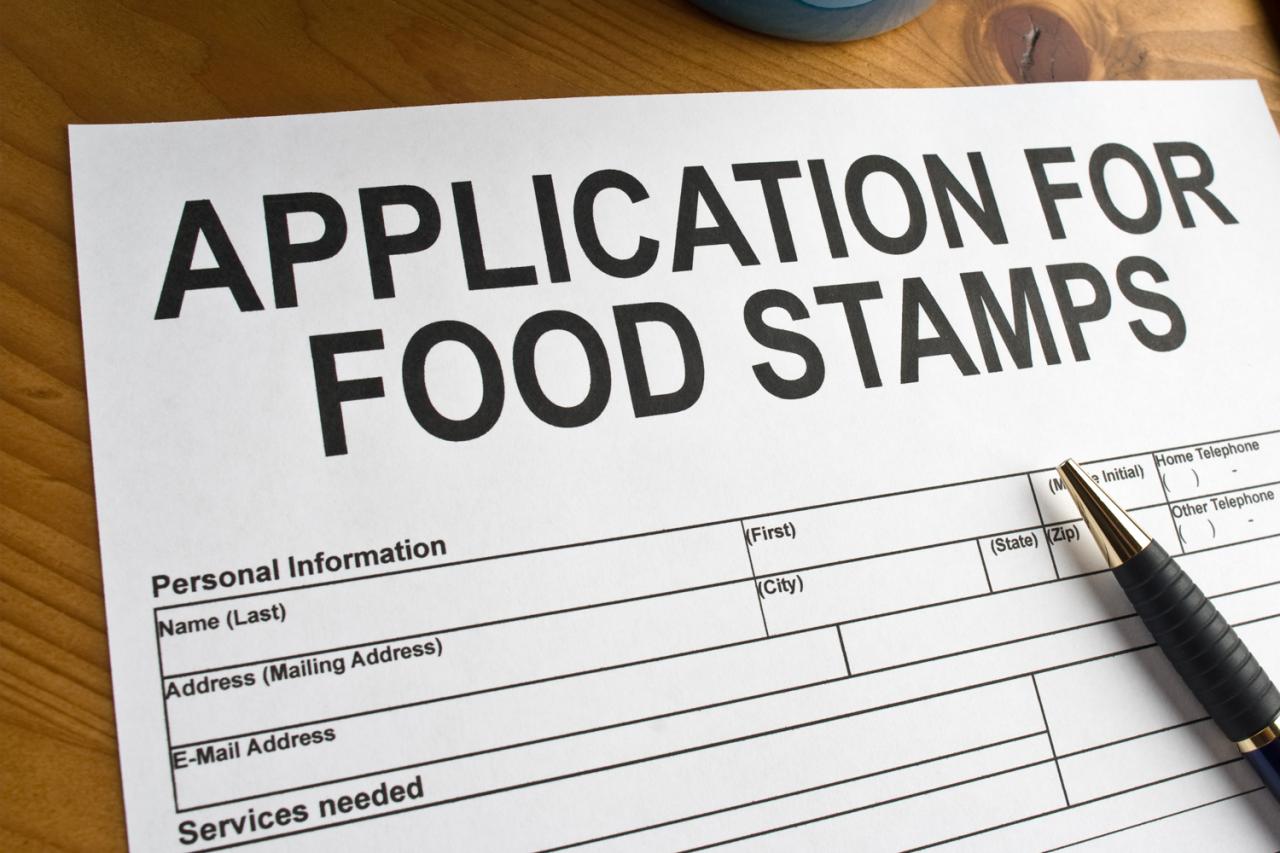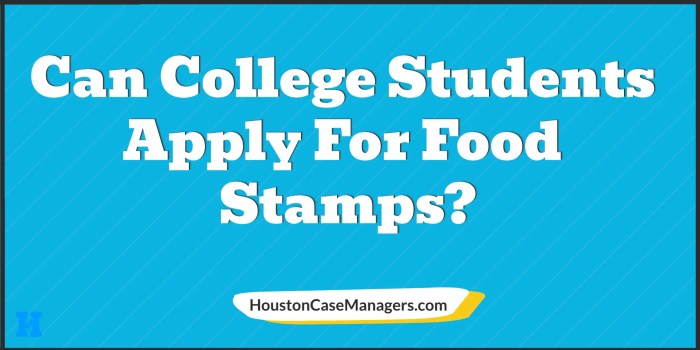Navigating graduate school often involves managing a myriad of expenses. Among the essential concerns is ensuring access to nutritious food. For many, food stamps, also known as Supplemental Nutrition Assistance Program (SNAP) benefits, can provide a lifeline of support. In this comprehensive guide, we delve into the eligibility criteria, application process, benefits, limitations, and ethical considerations surrounding food stamps for grad students.
Food stamps are a valuable resource for students facing financial constraints. Understanding the program’s nuances can help grad students make informed decisions about accessing this critical assistance.
Eligibility Requirements
To qualify for food stamps, you must meet certain eligibility criteria set by the government. These criteria include income and asset limits, as well as specific work requirements for able-bodied adults without dependents.
Income Limits
Income limits for food stamps are based on your household size and monthly income. The following table shows the gross income limits for different household sizes:| Household Size | Income Limit ||—|—|| 1 | $1,340 || 2 | $1,819 || 3 | $2,298 || 4 | $2,777 || 5 | $3,256 || 6 | $3,735 || 7 | $4,214 || 8 | $4,693 |For each additional person in your household, add $479 to the income limit.
Asset Limits
In addition to income limits, you must also meet asset limits to qualify for food stamps. The asset limit for most households is $2,500. However, households with elderly or disabled members may have a higher asset limit of $3,750.
Work Requirements
Able-bodied adults without dependents between the ages of 18 and 59 must meet certain work requirements to receive food stamps. These requirements include working at least 20 hours per week, participating in a workfare program, or being enrolled in a job training program.
Application Process

Applying for food stamps is a straightforward process that involves gathering the necessary documentation and submitting an application. Here’s a step-by-step guide:
- Gather the required documents, which may include proof of identity, income, and residency. These documents can typically be obtained from government agencies, banks, or other official sources.
- Contact your local social services office to obtain an application form. You can also apply online through the government’s website or by phone.
- Complete the application form accurately and provide all the required information. Make sure to include your contact details and any changes in your circumstances that may affect your eligibility.
- Submit the completed application form along with the required documentation to your local social services office or the appropriate online portal.
- Once your application is submitted, it will be reviewed by a caseworker who will determine your eligibility and the amount of food stamps you qualify for.
If you have any questions or need assistance during the application process, do not hesitate to contact your local social services office or visit the government’s website for more information.
Benefits and Limitations
Receiving food stamps offers several benefits, including access to nutritious food and financial assistance. The program helps individuals and families supplement their food budget, enabling them to purchase healthy and affordable groceries.
Financial Assistance
Food stamps provide financial assistance to low-income households, reducing their food expenses. This assistance frees up income for other essential expenses, such as housing, utilities, and transportation.
Access to Healthy Food
Food stamps promote access to healthy and nutritious food. The program encourages participants to purchase fruits, vegetables, and whole grains, supporting a balanced diet.
Limitations
While food stamps offer significant benefits, they also have certain limitations. These limitations include:
Monthly Benefit Cap
Food stamp benefits are capped at a certain amount each month, which may not be sufficient for larger households or those with special dietary needs.
Restricted Purchases
Food stamps can only be used to purchase eligible food items. This restriction excludes non-food items, such as household supplies, toiletries, and pet food.
Work Requirements
In some cases, able-bodied adults without dependents may be subject to work requirements to receive food stamps. This requirement can limit participation for individuals who face barriers to employment.
Impact on Education
Food stamps can have a significant impact on students’ academic performance. Research has shown that food insecurity is linked to lower grades, higher absenteeism, and reduced cognitive function. When students are hungry, they have difficulty concentrating, remembering information, and completing assignments.
Benefits for Students
- Improved academic performance
- Reduced absenteeism
- Enhanced cognitive function
One study found that students who participated in the Supplemental Nutrition Assistance Program (SNAP) had higher GPAs and were less likely to drop out of school. Another study found that SNAP participants had improved attendance and fewer behavioral problems.
Food stamps can also help students to stay healthy. When students have access to nutritious food, they are less likely to get sick and miss school. They are also more likely to have the energy and focus to succeed in their studies.
Alternative Programs

Besides food stamps, various other programs offer food assistance to students facing financial constraints.
These programs may differ in eligibility criteria, application processes, and benefits provided compared to food stamps.
Supplemental Nutrition Assistance Program (SNAP) Education and Training (SNAP E&T)
SNAP E&T is a program designed to help SNAP recipients gain the skills and knowledge necessary to achieve self-sufficiency.
- Offers training and education in areas such as job readiness, financial literacy, and nutrition.
- Provides access to resources and support services to help participants overcome barriers to employment.
- Eligibility is limited to SNAP recipients who meet specific criteria, such as being unemployed or underemployed.
The Emergency Food Assistance Program (TEFAP)
TEFAP is a federal program that provides emergency food assistance to low-income households.
- Distributes food through a network of local food banks and pantries.
- Eligibility is based on income and household size.
- Unlike food stamps, TEFAP does not provide a monthly benefit but rather a one-time distribution of food items.
Ethical Considerations
Providing food stamps to students raises several ethical concerns. These include the potential for stigmatization, dependency, and abuse.
Stigmatization
One concern is that providing food stamps to students could stigmatize them. This could lead to them being labeled as “poor” or “needy,” which could have a negative impact on their self-esteem and social standing.
Dependency
Another concern is that providing food stamps to students could create a dependency on government assistance. This could lead to students becoming less likely to seek out employment or other sources of income.
Abuse
Finally, there is the concern that providing food stamps to students could lead to abuse. This could occur if students sell their food stamps for cash or use them to purchase non-food items.
Recommendations
To enhance the efficacy of food stamp programs for students, several recommendations can be implemented.
One crucial aspect is simplifying the application process. Streamlining the paperwork and reducing bureaucratic hurdles would make it easier for students to access the program.
Policy Changes
- Streamline application procedures to reduce complexity and expedite approvals.
- Expand eligibility criteria to include a wider range of students facing financial hardship.
- Increase benefit amounts to reflect the rising cost of living and ensure students have adequate nutritional support.
Additional Support Services
- Provide outreach and education programs to inform students about food stamp availability and eligibility.
- Establish on-campus food pantries or meal programs to supplement food stamps and address immediate hunger needs.
- Offer financial counseling and budgeting assistance to help students manage their expenses and make informed decisions.
Final Thoughts

In conclusion, food stamps can provide much-needed support for grad students struggling with food insecurity. However, the program’s eligibility criteria and limitations warrant careful consideration. By understanding the program’s complexities and exploring alternative options, students can make informed choices that support their academic and personal well-being.
Q&A
Are grad students eligible for food stamps?
Yes, grad students may be eligible for food stamps if they meet specific income and asset limits and are enrolled at least half-time in an accredited institution.
What is the income limit for food stamps?
Income limits vary depending on household size and state of residence. Generally, households with incomes below 130% of the federal poverty level are eligible.
What documents are required to apply for food stamps?
Required documents may include proof of income, proof of identity, proof of residency, and proof of enrollment for students.
Can food stamps be used to purchase non-food items?
No, food stamps can only be used to purchase eligible food items at authorized retailers.
Do food stamps affect financial aid eligibility?
Receiving food stamps does not directly impact federal student aid eligibility, but it may affect work-study eligibility or other need-based aid.